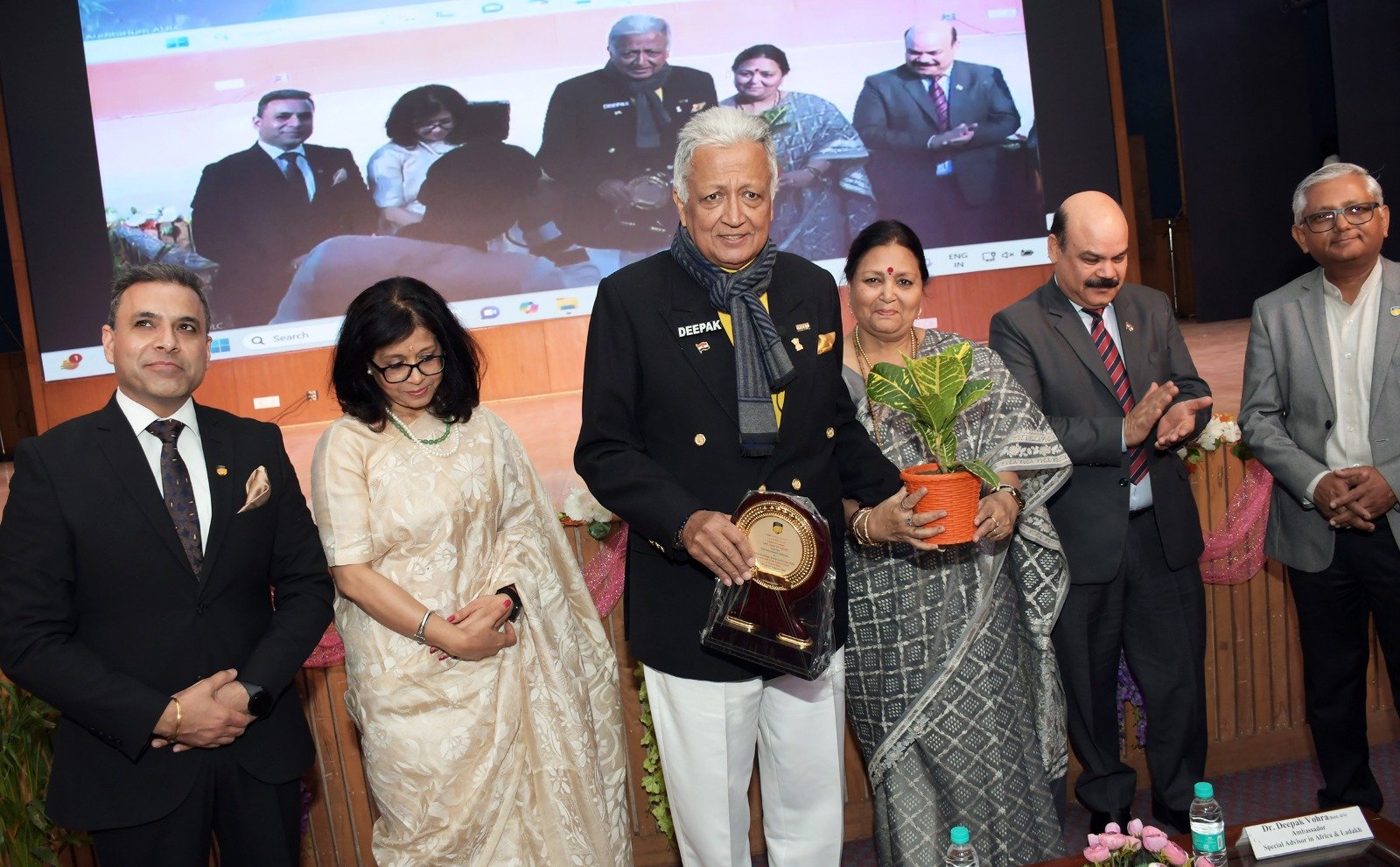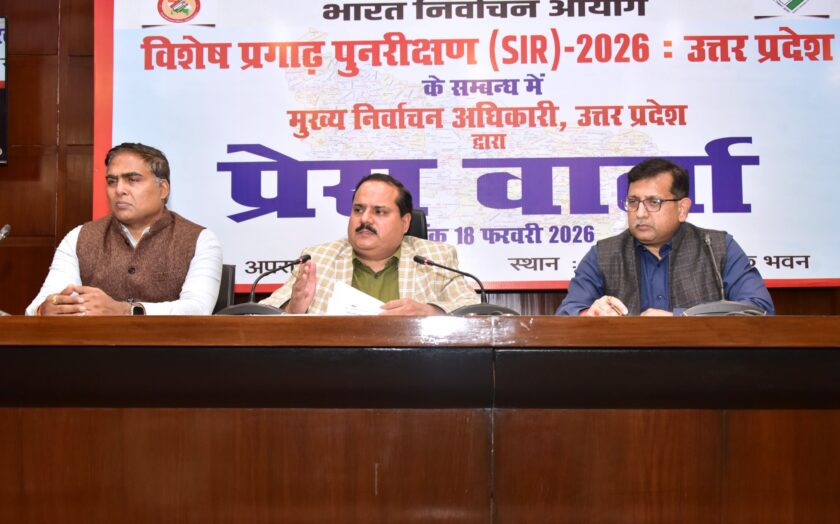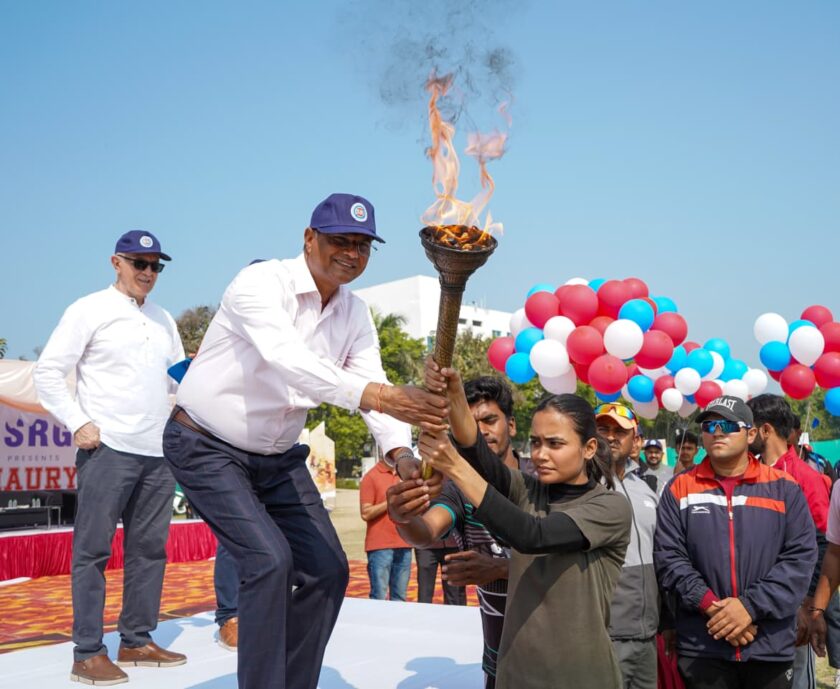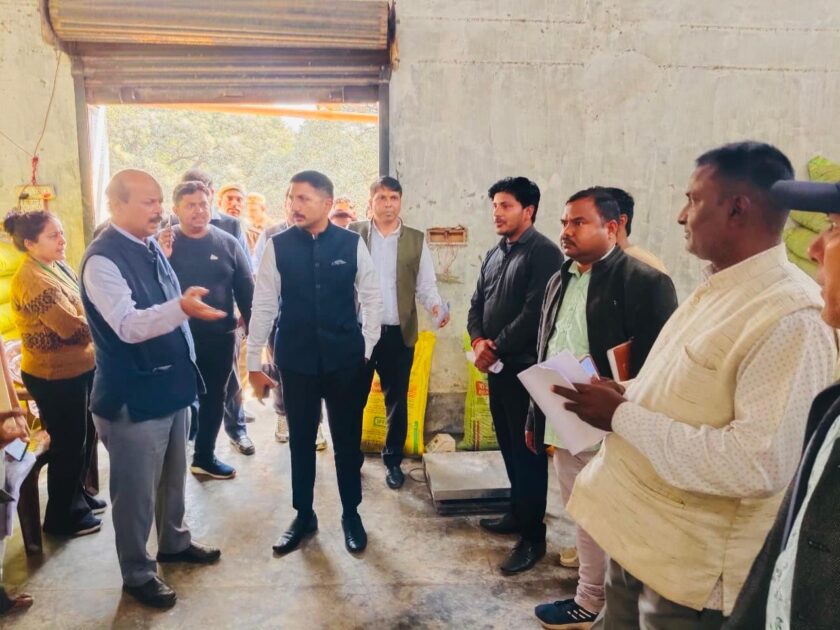Amity School of Languages Organizes 12th International Conference on “Indian Knowledge System and Foreign Policy”
Lucknow – “When the time comes, I will turn to dust, I will sleep in the lap of this motherland. When the bugle of India sounds, I will rise again and stand guard.”
We are not Indians just because we live in India; rather, we are Indians because India resides in us. In 2011, when a massive earthquake struck Sikkim, 300 roads were destroyed. A European company estimated nine months to rebuild them. Upon the Prime Minister’s request, I called the Director of Border Roads and asked, “Sir, how much time will it take to rebuild the roads? The PM wants to know.” The response was, “We will inspect first and then inform you.” Everyone was worried about how long supplies would have to be airlifted to sustain the people. Exactly 19 hours later, the Director of Border Roads called back, saying, “Mr. Ambassador! The roads are open.” However, 22 of our brave soldiers sacrificed their lives in accomplishing this feat. When I went to meet the mother of one of the martyrs, she said, “Please enlist my other son in the forces as well. If the time comes, he too will lay down his life for the country.” This is a land where the youth do not hesitate to sacrifice for the nation. This is why India resides in us, and that is why we are Indians.
This deeply emotional anecdote was shared by Ambassador Deepak Vohra, Special Advisor to the Government of India for Africa & Ladakh and retired IFS officer, during his address at the 12th International Conference on “Indian Knowledge System and Foreign Policy” organized by Amity School of Languages, Amity University Lucknow Campus, in collaboration with the Indian Council of World Affairs (ICWA). Ambassador Vohra’s lecture, based on the principles of Chanakya’s policies, was engaging, fact-based, and unique in its style, leaving a profound impact on the students and attendees.
He explained that to understand India’s foreign policy today, one must look at the global initiatives undertaken by the country. He recalled how, in 1966, when India faced a famine and approached the United States for food aid, The New York Times ran the headline: “India’s Leader Comes Begging.” He vividly remembered going hungry for 52 days during that time. However, he emphasized, “Today’s India is different. Today, we are among the first nations to provide aid to other countries. In times of crisis, the world looks to India.”
Citing Chanakya’s wisdom, he stated, “A nation with a good leader follows good policies, and such a leader can emerge as a global power.” He highlighted India’s remarkable progress, mentioning that India is now capable of launching two naval warships and a submarine in a single day, deploying over 100 satellites in one day, constructing 34 kilometers of highways daily, building eight airports annually, and exploring uncharted territories in space. He remarked that this is India moving forward in the light of its rich cultural heritage and knowledge system.
The inaugural session of this two-day international conference was graced by distinguished guests, including Ambassador Deepak Vohra as the Chief Guest, Dr. Nivedita Ray, Director of Research at ICWA, New Delhi, Prof. (Dr.) Anil Vashistha, Pro Vice Chancellor of Amity University Lucknow Campus, Retired Wing Commander Dr. Anil Kumar Tiwari, Deputy Pro Vice Chancellor of Amity University Lucknow, Dr. Rajesh Tiwari, Dean Academics, and Dr. Kumkum Ray, Director of Amity School of Languages. The conference was inaugurated with the traditional lighting of the lamp.

Welcoming the guests, Dr. Kumkum Ray emphasized that India’s ancient Vedic culture and knowledge system are deeply rooted in our social values, traditions, and adaptability. She highlighted that the New Education Policy (NEP) aligns with the educational vision of Dr. Ashok K. Chauhan, Founder President of Amity University.
Prof. (Dr.) Anil Vashistha expressed confidence that the conference would serve as a milestone in revisiting India’s knowledge traditions and exploring their role in shaping modern foreign policy. He emphasized that the objective of the conference is to bring together scholars and policymakers from across the world to engage in in-depth discussions on India’s knowledge system and foreign policy prospects.
Retired Wing Commander Dr. Anil Kumar Tiwari remarked that we cannot envision a superpower India without excelling in education. He noted that in ancient times, India was known not for its military might but for its cultural heritage and knowledge—its Vedas and wisdom. He stated that this heritage will once again pave the way for a developed India.
Dr. Nivedita Ray raised critical questions about the very definition and scope of the Indian knowledge system and its distinction from European knowledge systems. She noted that India’s diplomatic framework is deeply influenced by Chanakya’s Arthashastra and the philosophy of “Vasudhaiva Kutumbakam” (The world is one family). However, in today’s geopolitical context, there is a need to redefine these principles.
The conference witnessed the participation of faculty heads, faculty members, and students from across departments at Amity University Lucknow Campus. The event concluded with a vote of thanks delivered by Assistant Professor Ayushi Garg.









